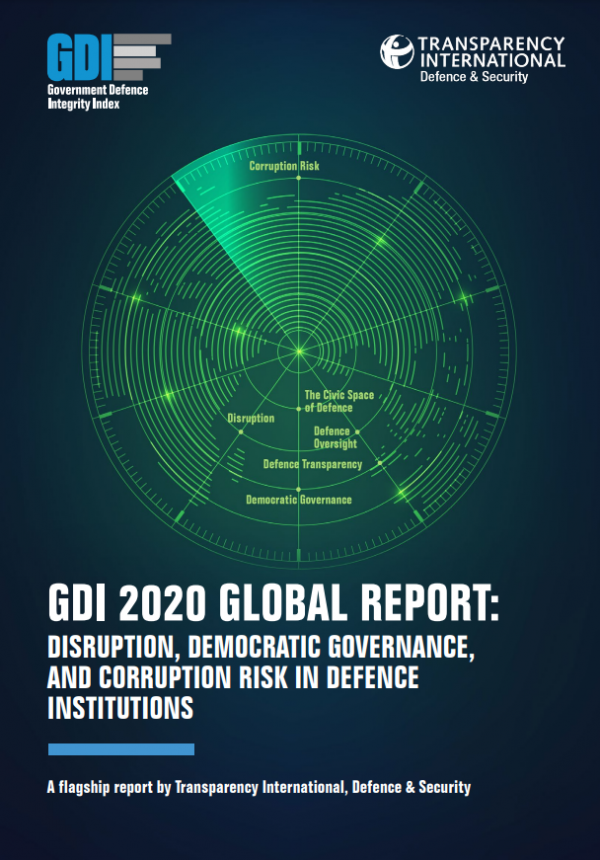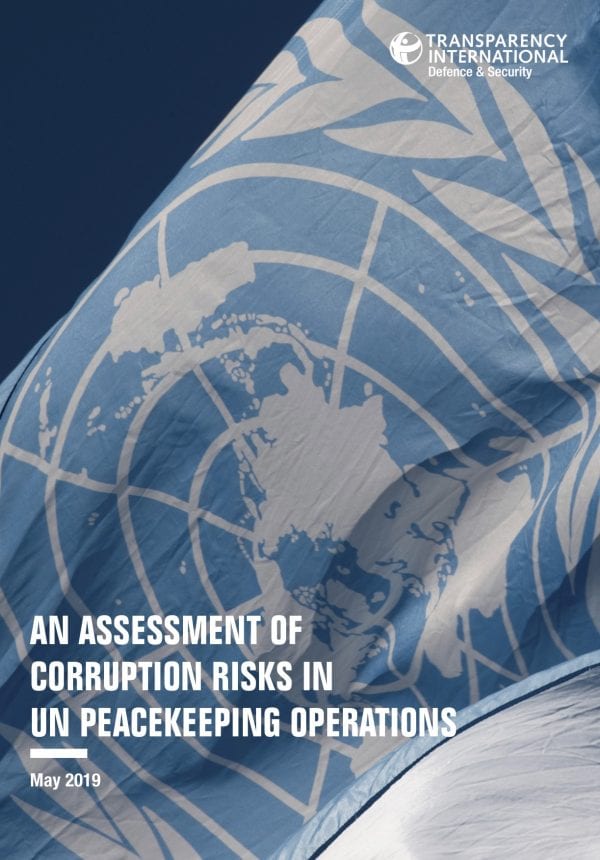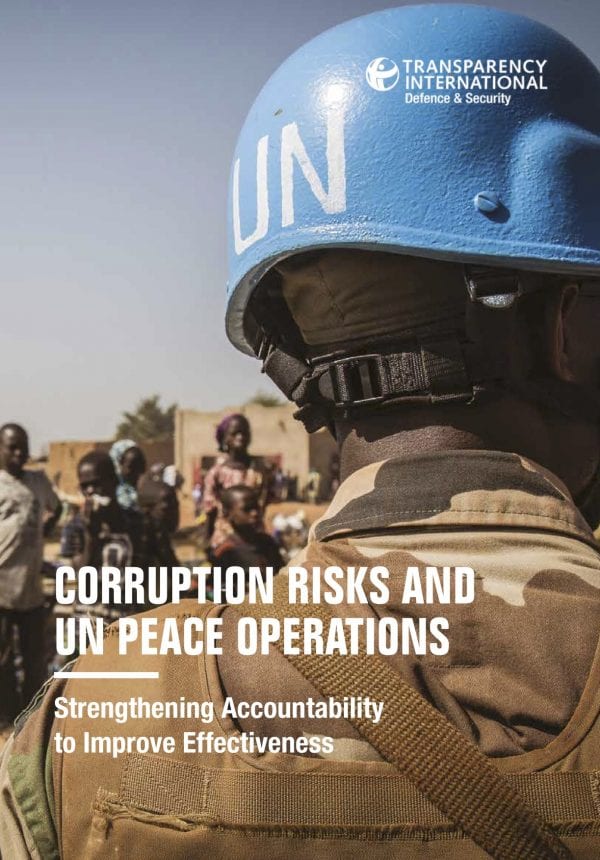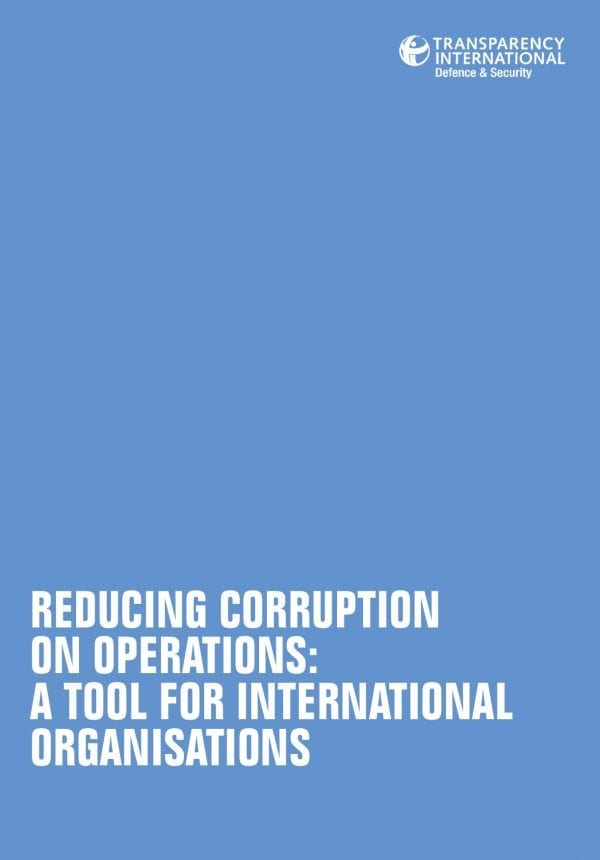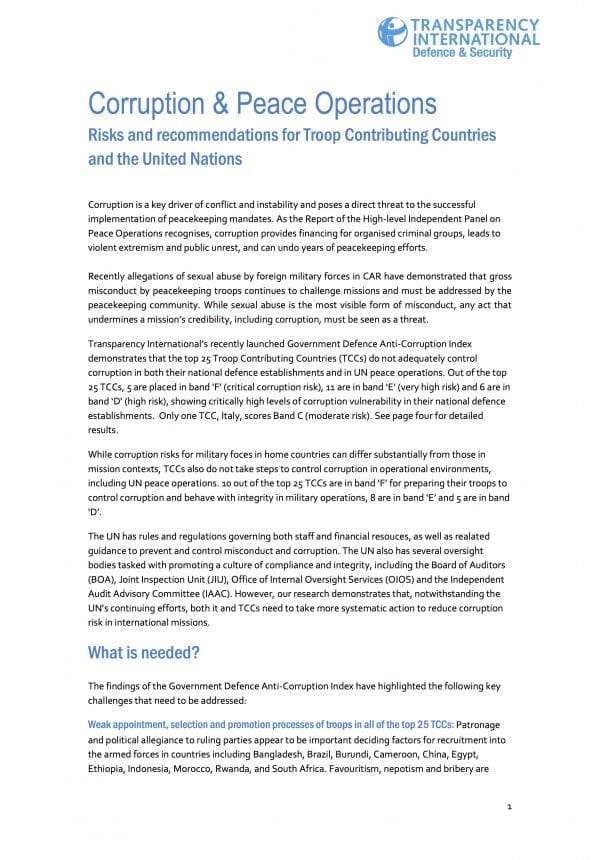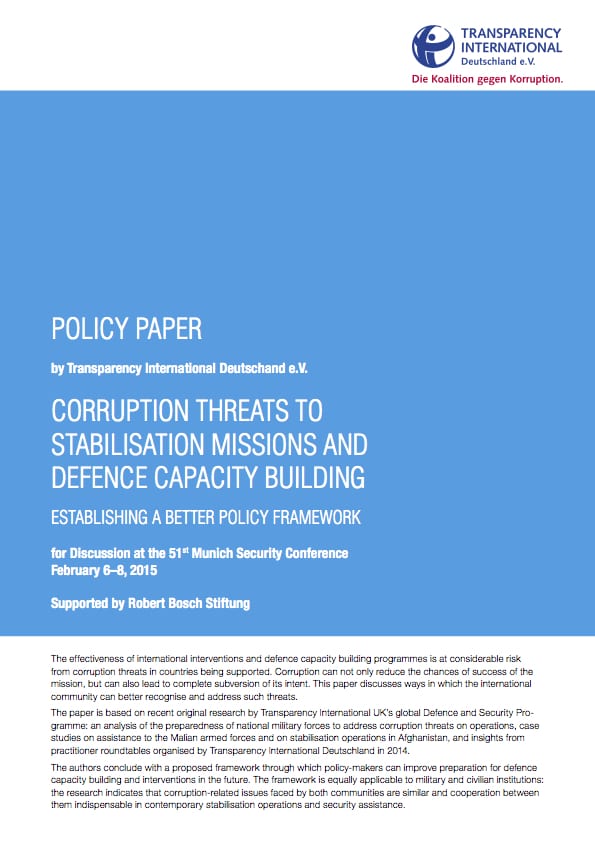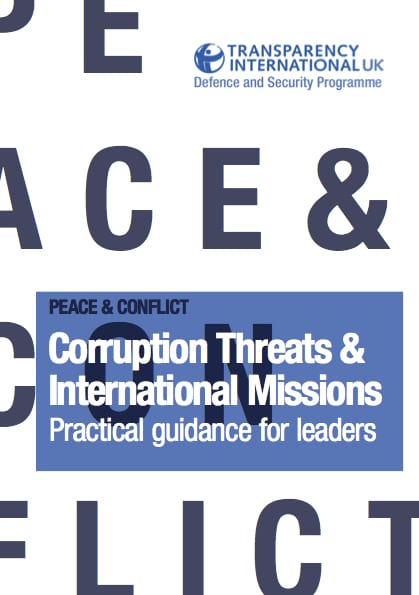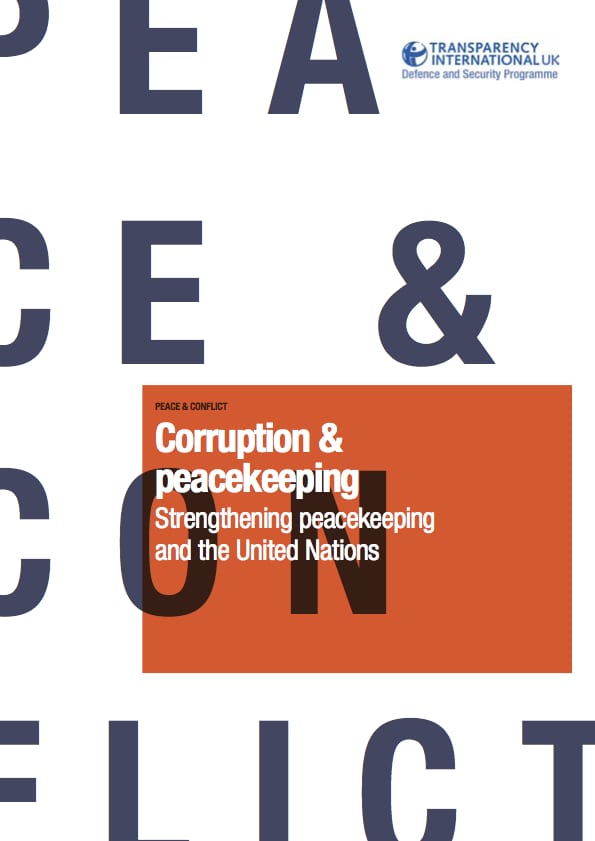Corruption Risks and UN Peace Operations
United Nations (UN) peace operations have always faced complex challenges, and in the current international environment, these are set to increase. The process of designing and delivering a peace operation is exceptionally challenging and profoundly political – from the initial mandate design and approval, the involvement of multiple actors (both UN and non-UN), through to the management of personnel and equipment, successive mandate renewals and the transition and closure of missions.
As this complexity increases, peace operations also face growing threats to their legitimacy. The UN has done much to address the risks faced by missions, but scandals implicating peacekeepers can still cause enormous damage and need to be met by a robust response. Failure in this respect can be doubly damaging at time when critical voices are calling for budget reductions and a more effective use of resources in multilateral responses. Corruption and poor governance, around and within peacekeeping missions, or the failure to understand how such issues may influence conditions in the mission area, will only exacerbate these challenges, undermining mission effectiveness and diminishing political and public trust in UN operations. Indeed, the UN’s responsibility for the maintenance of peace and security – and by implication, to prevent human suffering – risks being frustrated if corruption is overlooked or facilitated through lack of awareness or inadequate oversight. Corruption, defined by Transparency International as “the abuse of entrusted power for private gain”, needs to be recognised as one of the principal challenges facing UN operations, and merits distinct treatment as a major strategic and operational risk.
Download Publication as PDF